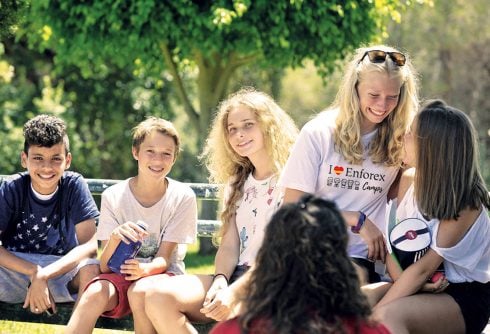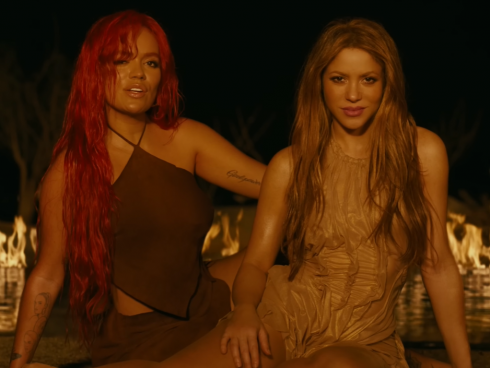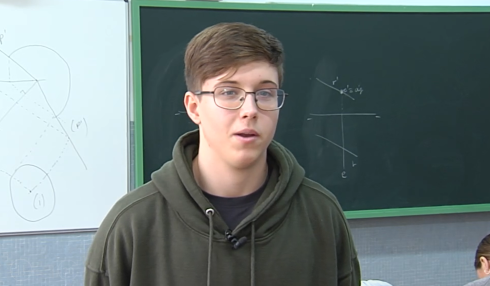IN the late 1980s, when I was a secondary school pupil in England, there were no smart devices. Phone calls were made from a landline in your parents’ lounge, and they could hear your conversation.
Writing was done with pens and pencils, while typewriters were used in offices, and the internet was still a sparkle in the eye of the US military.
Fast forward 35 years and everything has changed. Mobile devices and apps are ubiquitous. Parents use them. Students use them.
And, yes, some families love them. But most (yours truly included) hate them, because making quick and easy phone calls to the school has now been discouraged, as has popping in for a chat. The app called iPasen (created by the Junta) governs everything in the public school system in Andalucia. This includes registering absences (per missed class, not the whole day), monitoring of exam grades, notifying about school trips and holidays, and making appointments with teachers.
However, miss an important message on the app and you’ll receive the equivalent of a parental, “C-minus – could do better”.
Some studious children reportedly use apps and social media to help with their learning pathway. However, the common purpose is for entertainment. With students, 1% reportedly use their ‘socials’ for academic purposes, while 68% attribute their late bedtime to its usage.
A British study linked social media use to decreased sleep quality associated with depression, memory loss, and poor academic performance in 2018. An Iranian study in 2021 drew similar conclusions.
Parents might not realise that their teen is sneakily viewing social media under the duvet, leading to poor concentration the next day.
Inappropriate influencers
As parents and teachers are increasingly aware, sites such as TikTok and YouTube are used to follow the latest influencers: ones they consider ‘cool’ and worthy of respect. This is where a problem materialises.
Back in our day, ‘influence’ was what your family tried to instil as social values. Despite their best efforts to be traditional, some of us ventured, bright eyed, on to the 70s, 80s or 90s music scene, and formed our own worldview.
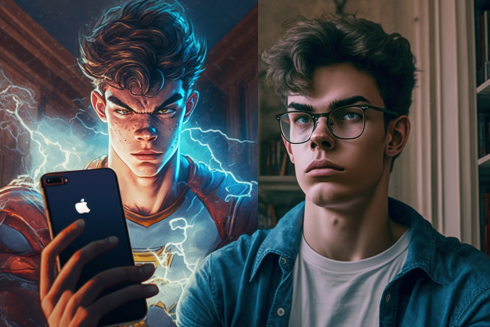
In that era, the social edict was ‘get on with people from every walk of life’ (maybe even hug them, particularly in the classic 90s ‘summer of love’!) rather than the division and mistrust being sown today.
The current hate fashion is being fuelled, in part, by influencers (both organisations and individuals) who use social media algorithms to share dubious ideas. They are directly targeting our teens.
Alleged rapist and sex trafficker, Andrew Tate, is a classic example. Much lauded by teenagers, the Anglo-American social media giant has millions of followers, despite a sketchy track record of criminality and a penchant for misogyny.
In particular, his content promotes how formal education is unnecessary to become rich and famous.
Indeed, Tate is widely blamed for having a negative influence on secondary school pupils, with some deprogramming courses having to be introduced in parts of the UK.
A British company, Men at Work, trains UK school staff how to approach these issues. One female teacher reported a teen boy belittling her by putting ‘MMAS’ (make me a sandwich) on the bottom of every assignment, taken from a sexist meme circulating online.
Archie, a British 15-year-old from Granada, respects his teacher but aspires towards the lifestyle promoted by Tate and other famous influencers, such as psychologist and author, Jordan Henderson, who is popular on YouTube.
Scathing of the job opportunities for school leavers in Andalucia, he says: “I’ve lost hope in the modern school system. I strongly dislike school because I believe that it doesn’t teach you to be rich and successful. Instead, it trains you to be a pawn working long hours for bad pay.”
He adds: “School teaches in a way you’ll forget. You’ll study for an exam and forget it afterwards. Then you are bombarded with more boring information, taught in boring ways. By the time you finish school, you can’t remember it.”
Danger of drill artists
Archie suggests that far worse content than Tate’s misogyny exists for impressionable youths.
Despite positioning himself as ‘Top G’ (meaning gangster), at least Tate encourages young men to learn a marketable skill, such as drop-shipping or crypto investment.
Other influencers encourage flat-out crime, in both Spain and the UK.
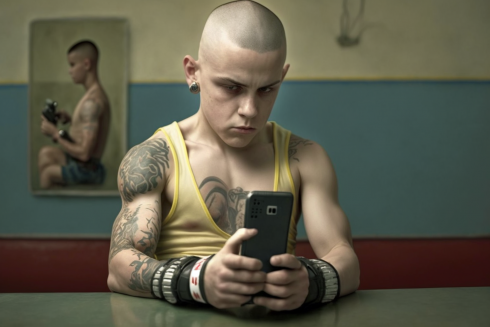
Drill artists, in particular, are leading school pupils astray, insists Archie. “People are looking up to drill artists, who are bad influences. Most songs are about killing and stabbing, abandoning women, robbing, and stealing. It is influencing kids towards this roadman lifestyle and thinking that stabbing people is cool.”
Teacher challenge
According to Ana Moreno Rodriguez, a public-school teacher, based in Granada, influencers are causing noticeable difficulties for her profession, and many teachers are trying to change the resulting negative attitudes in class.
This includes reinforcing that it’s necessary to leave school with, at least, the ESO certificate (equivalent to UK GCSEs), to avoid entering the job market with no qualifications. One such example is that to become a mechanic you will need to graduate with an ESO that includes maths.
However, many teens demonstrably aren’t listening or don’t care.
“We are all trying our best to counteract this, but I don’t think anything is being done in a regulated way,” Rodriguez tells the Olive Press.
“But not all social problems can be addressed at school. Families also must address it. After all, parents buy mobile phones ahead of time, without supervision or training. We’re putting dangerous weapons into the hands of children – if they are misused.”
Online influence is here to stay
With teens already influenced by what they find online, apps are becoming the default for daily tasks. With even many adults obsessed with their social media reach, we’re unlikely to close the stable door now that the horse has bolted into cyberspace.
Remember that many schools used distance learning during the Covid pandemic, and many people liked that model (not necessarily the parents).
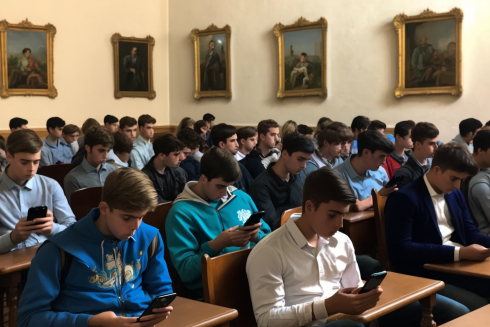
Perhaps that’s where we’re logically heading, as an option. Home-learning if you want that route. It’s already possible for teens in Spain to study the UK GCSEs and A-Levels by distance learning, with the physical exam sat in the UK. Spain doesn’t offer an online ESO option yet. But perhaps it’s coming.
The biggest question it begs: without a teacher present in the room, would some pupils study anything at all?
READ MORE
- The problem with Andrew Tate, the king of toxic masculinity, and adolescent males in Spain
- How to motivate your teen for the new academic year in Spain’s education system



